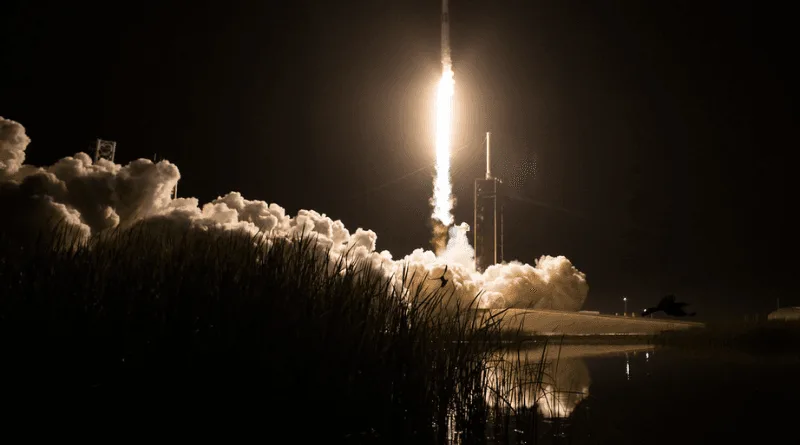Is space travel a reality for the average citizen? Here’s the journey plan!

Space travel has been a dream of humanity since the dawn of history, as people aspire to soar high into the sky and touch the limits of the vast universe in which they live. Over time, space agencies affiliated with major governments have sought to assert their control over space and demonstrate their power and competence.
Numerous manned and unmanned space missions have been launched, such as the space program of the former Soviet Union and the space program run by the American space agency NASA.
More recently, spaceflight has witnessed a qualitative shift with the emergence of private companies such as Virgin Galactic, SpaceX, and Blue Origin, which have moved towards commercializing spaceflight, whether for tourism or for transporting cargo and astronauts.
But can the average person achieve this dream? We will find out in the following paragraphs.
Transition to Commercial Spaceflight
Initially, spaceflight was the exclusive domain of governments and national space agencies, such as NASA in the United States and the Soviet (now Russian) space program, with the primary goal being scientific exploration and dominance of the space race.
SpaceShipOne (2004):
SpaceShipOne’s flight on June 21, 2004, was the first private suborbital human spaceflight. Designed by Burt Rutan and winning the X Prize, this flight marked a significant turning point in demonstrating the viability of private spaceflight.
Virgin Galactic:
Founded by billionaire Richard Branson, Virgin Galactic is one of the leading companies aiming to make space tourism a reality. Virgin Galactic launched its first commercial flight, “Galactic 01,” in July 2023, carrying passengers from the Italian Air Force. This marked a significant achievement in making spaceflight accessible to individuals, albeit at a high cost that is unaffordable for the general public.
SpaceX:
Led by Elon Musk, SpaceX has played a pivotal role in reducing rocket launch costs and developing reusable rocket technology. In May 2020, SpaceX conducted the first commercial crewed flight into orbit, transporting NASA astronauts to the International Space Station under a U.S. government contract, marking a significant shift away from reliance on private companies for critical space missions. SpaceX also launched the first fully private spaceflight in 2021.
Blue Origin:
Founded by Jeff Bezos, Blue Origin is developing technology to provide private access to space, with the goal of reducing costs and increasing accessibility. Blue Origin has already carried the first group of civilians on a suborbital flight.
Axiom Space:
This startup is commercializing flights to the International Space Station and plans to launch the first-ever commercial space station in 2025.
Are you really thinking about traveling to space? Here are the potential costs
The actual cost of commercial spaceflight varies greatly depending on the company, the type of flight (orbital or suborbital), and the duration of the flight.
Here are some estimated costs:

Virgin Galactic:
Currently, tickets for its short suborbital flights, which last about 90 minutes, including a few minutes in zero gravity, are estimated at approximately $450,000 per seat.
Previously, prices ranged between $200,000 and $250,000.
Blue Origin:
For its short suborbital flights, which last about 10-15 minutes, including a few minutes in zero gravity, ticket prices in previous auctions have ranged between $200,000 and $300,000 per passenger.
SpaceX and other orbital flight companies:
More advanced orbital flights, such as those offered by SpaceX to the International Space Station, which include temporary accommodations, can cost up to $55 million per person.
Axiom Space has announced that each crew member will pay $55 million to travel aboard a SpaceX rocket to the International Space Station.
Important Notes:
- These prices are subject to change as technology evolves and competition in the space tourism market increases.
- Suborbital flights are much shorter and only reach the edge of space, while orbital flights orbit Earth and provide a longer experience in space.
- The cost may also include extensive pre-flight training.
Flight Preparation and Details
Flight preparation and details vary depending on the type of flight (suborbital or orbital) and the service provider. Here is an overview:
Pre-flight Preparations:
Medical Screening: All passengers must pass a medical screening to ensure they are physically fit for the flight.
Training:
Virgin Galactic and Blue Origin (suborbital flights): This intensive training typically takes several days and includes:
- Preparing for weightlessness.
- Preparing for G-forces.
- Emergency procedures.
- Getting used to the vehicle environment.
- Training may include flying in special aircraft that simulate weightlessness.
SpaceX (orbital flights):
Requires more extensive training and preparation for longer stays in space and may include training in:
- Extravehicular Activity (EVA) if the flight includes it.
- Controlling vehicle systems.
- Diving to simulate a zero-gravity environment.
- Getting used to rotation and the physical effects of microgravity.
Payment and Deposit:
Companies require a down payment, and the remaining balance is due before the flight date.
Completing Questionnaires:
Passengers must complete medical questionnaires and other required documents.
Flight Details:
Suborbital flights, such as those of Virgin Galactic and Blue Origin:
Duration: Very short, between 10 and 90 minutes.
Altitude: Reaching the edge of space, approximately 80 to 100 kilometers above Earth’s surface.
Launch:
- Virgin Galactic: The carrier aircraft (VMS Eve) launches from a conventional runway, then the spacecraft (VSS Unity) lifts off from a certain altitude to fire its rocket engines and ascend into space.
- Blue Origin: The New Shepard rocket lifts vertically from the launch pad.
Experience Weightlessness:
Once in space, passengers are allowed to unbuckle their seatbelts and experience weightlessness for a few minutes, approximately 3 to 5 minutes.
Views:
Passengers can enjoy panoramic views of Earth from the spacecraft windows and see the curvature of the planet.
Return:
The spacecraft returns to Earth and lands on a runway (Virgin Galactic) or on the capsule’s parachutes (Blue Origin).
Orbital flights, such as SpaceX’s flights to the International Space Station:
- Duration: Much longer, ranging from a few days to several weeks.
- Altitude: The spacecraft orbits Earth at higher altitudes (about 400 kilometers for the ISS).
- Launch: The spacecraft (such as the Dragon capsule) is launched aboard a powerful rocket (such as the Falcon 9).
- Arrival: The capsule separates from the rocket and enters Earth’s orbit.
- Docking (if the destination is the International Space Station): The spacecraft docks with the ISS.
Activities in Space:
Passengers can experience zero gravity for extended periods, conduct scientific experiments in some cases, enjoy views of Earth from orbit, and even participate in extravehicular activities for trained astronauts.
Return:
The capsule returns to Earth and lands in the ocean or on land.
In general
all of these flights aim to provide a unique and amazing space travel experience, with an emphasis on maximum passenger safety.
Also read:
- a-self-driving-tesla-taxi-crashes-into-a-parked-vehicle
- a-chinese-humanoid-robot-cooks-using-virtual-reality
- brain-computer-interfaces-when-telepathy-becomes-a-technological-reality




